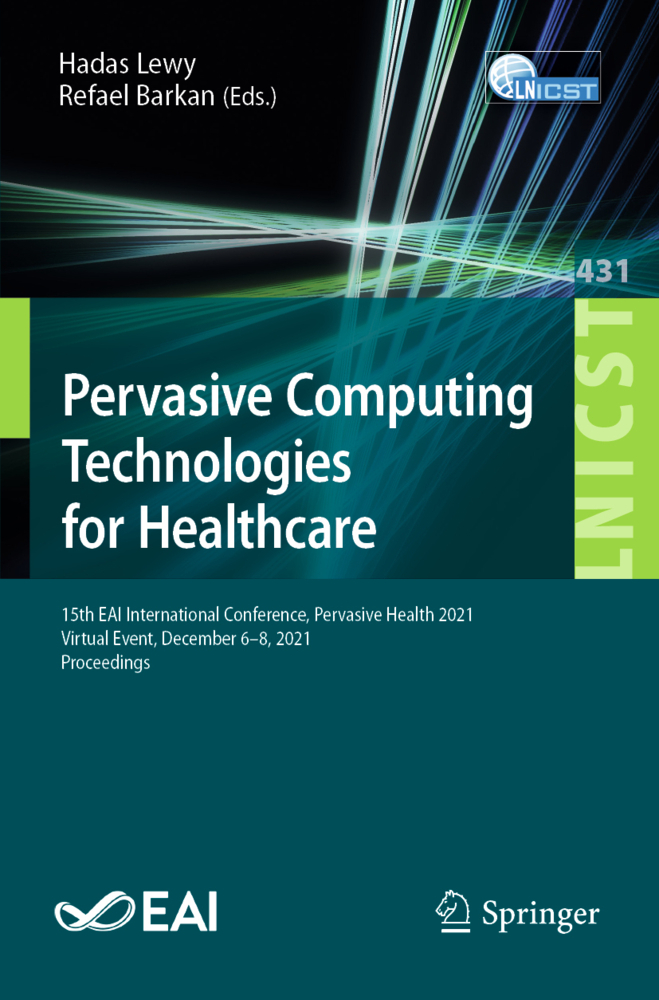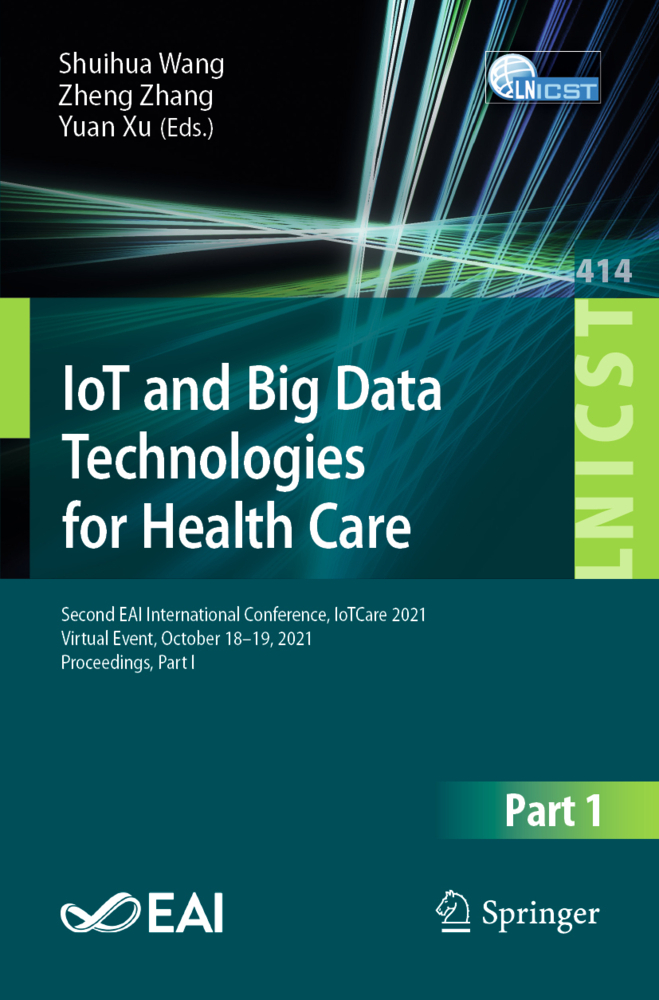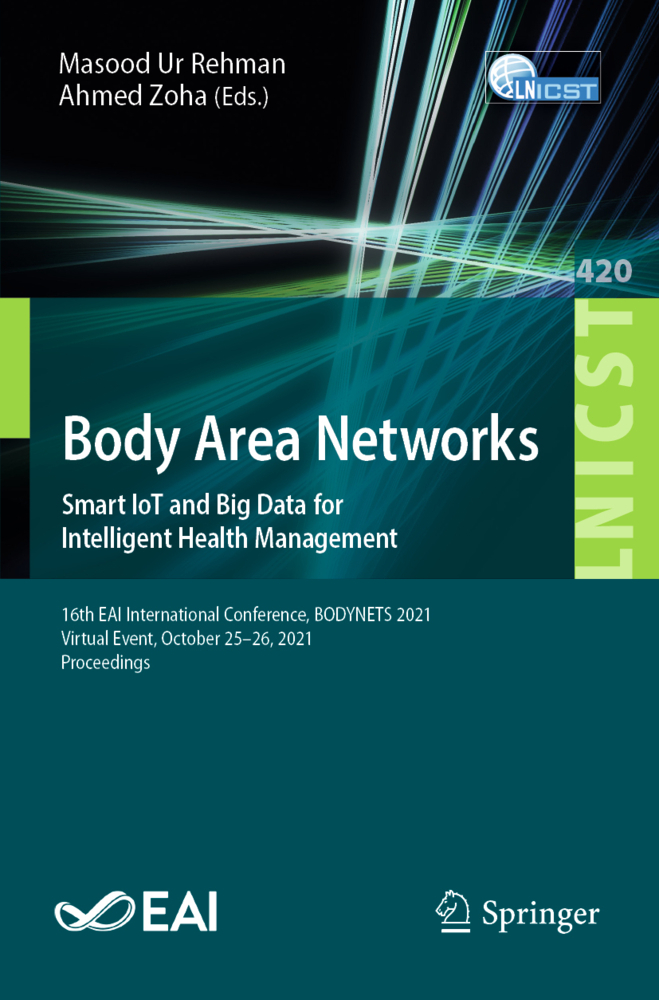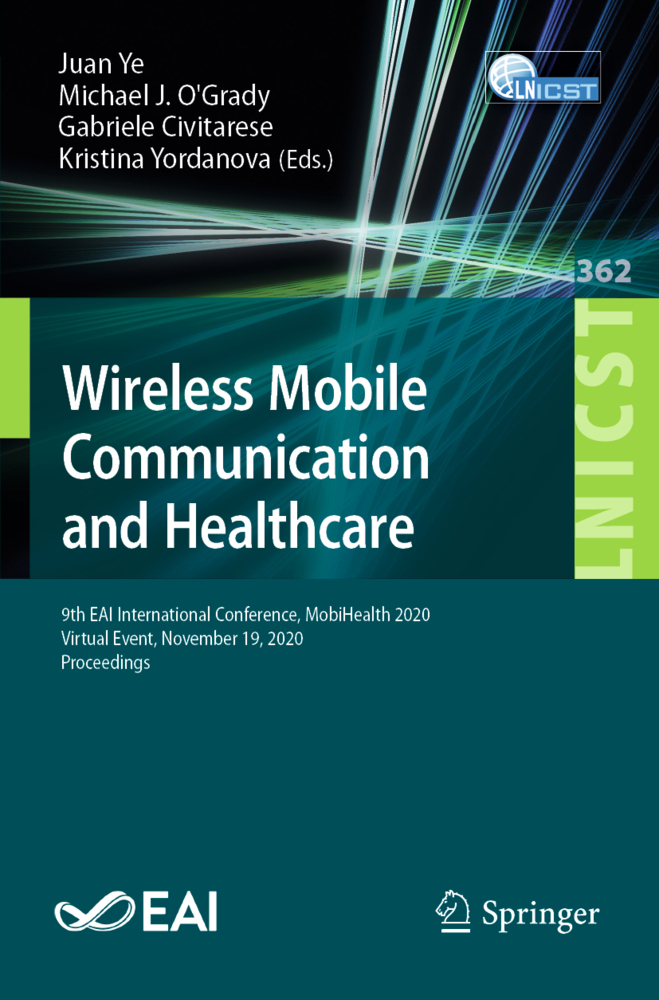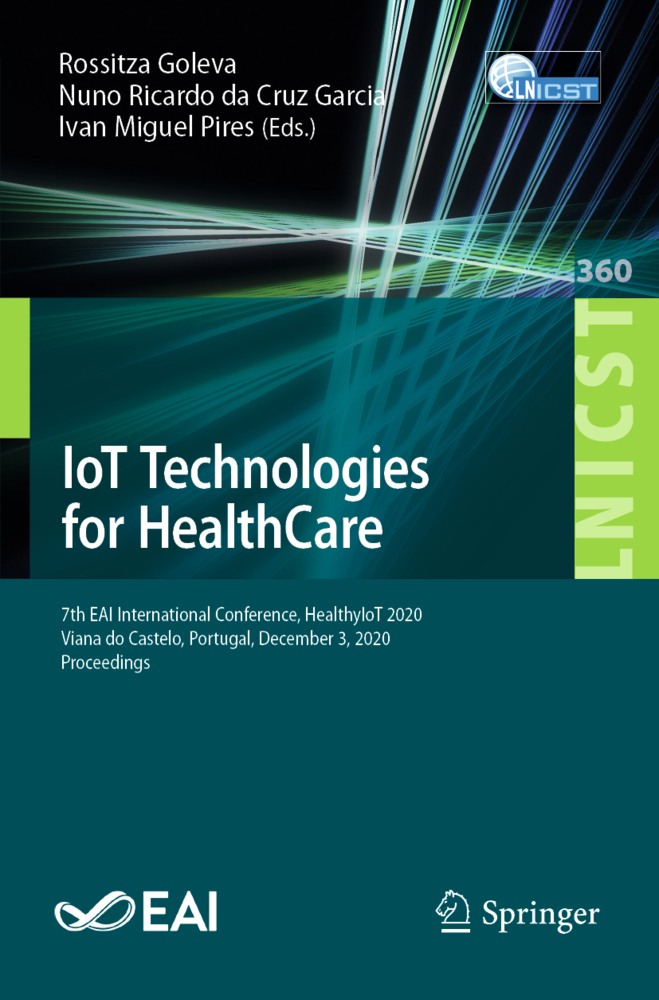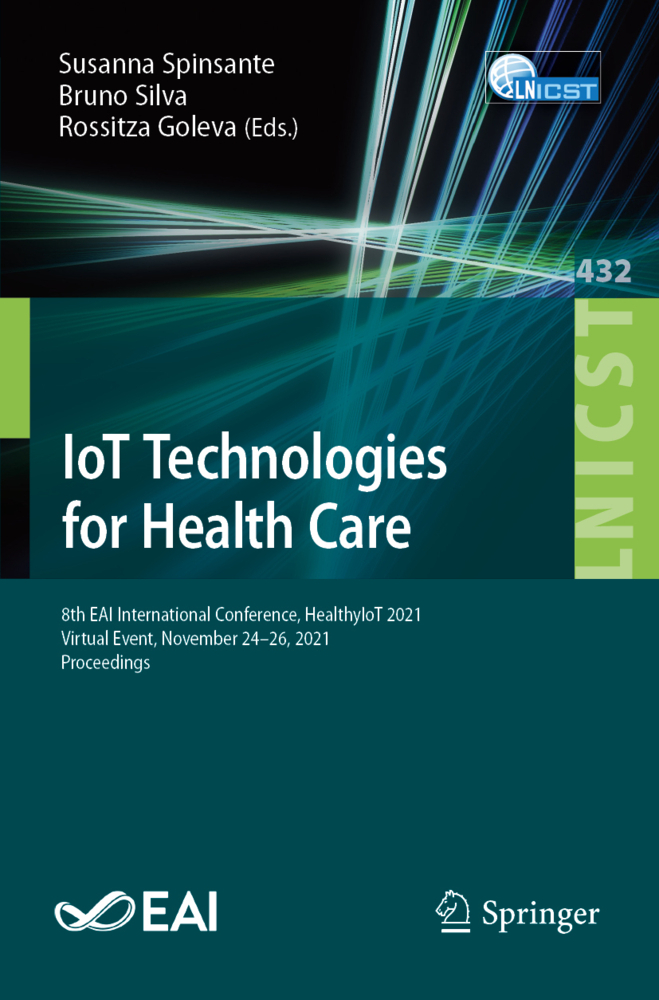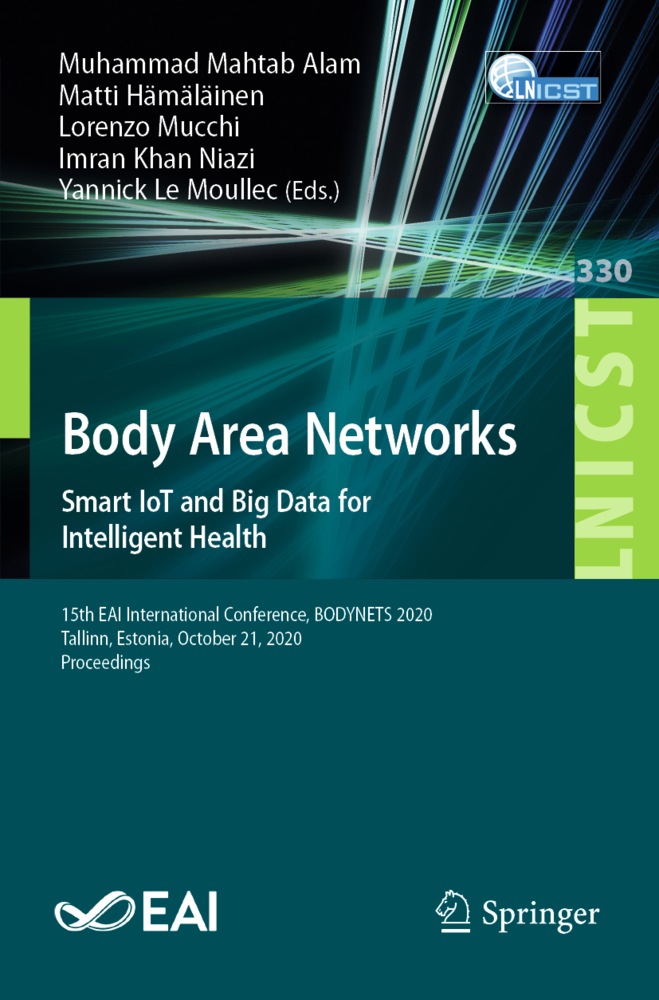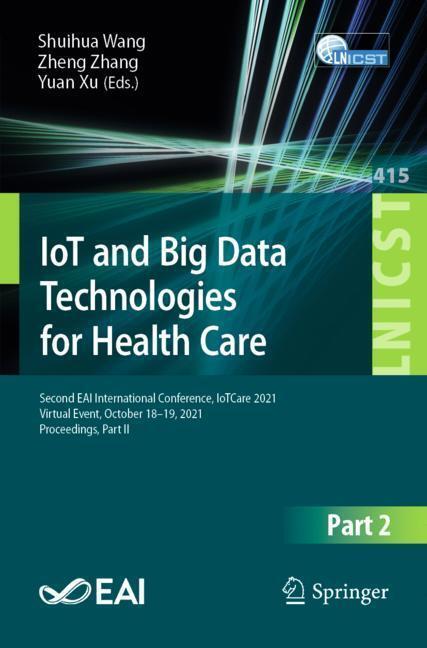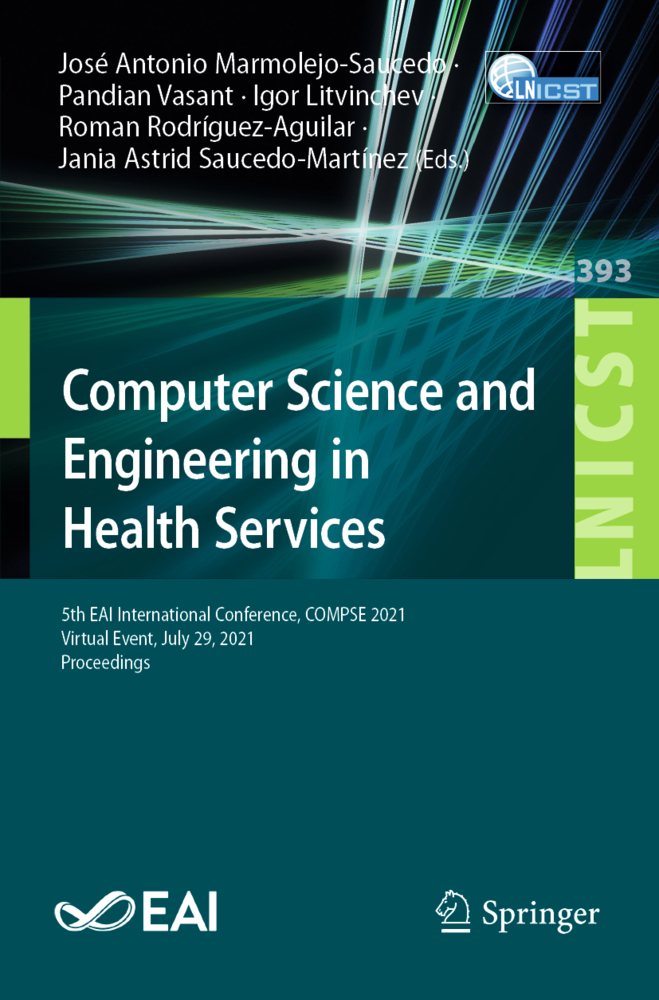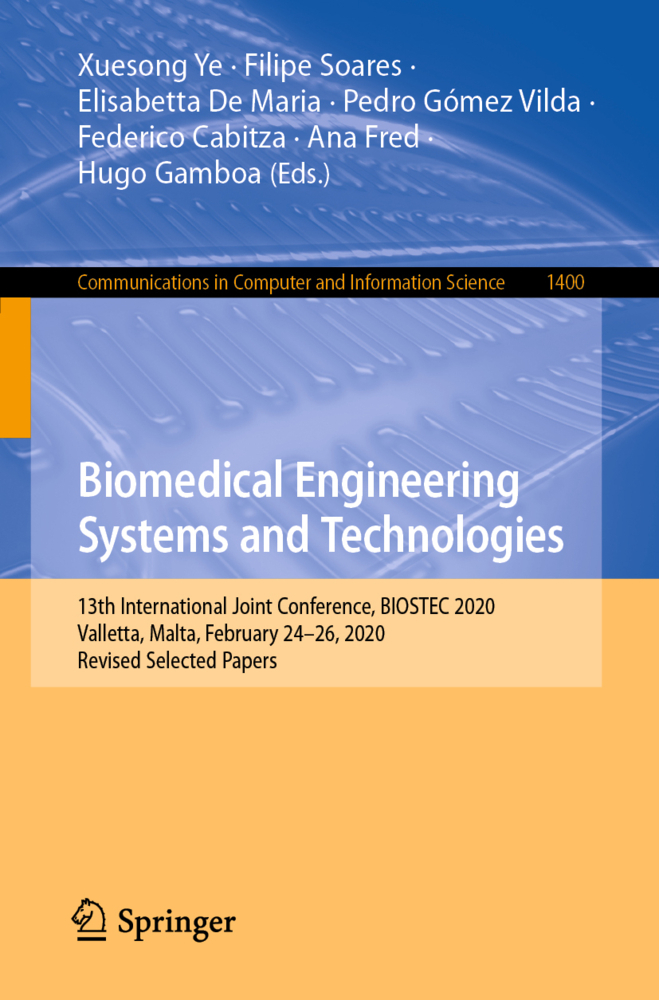Pervasive Computing Technologies for Healthcare
15th EAI International Conference, Pervasive Health 2021, Virtual Event, December 6-8, 2021, Proceedings
Pervasive Computing Technologies for Healthcare
15th EAI International Conference, Pervasive Health 2021, Virtual Event, December 6-8, 2021, Proceedings
This book constitutes the refereed proceedings of the 15th International Conference on Pervasive Computing Technologies for Healthcare, Pervasive Health 2021, held in December 2021. Due to COVID-19 pandemic the conference was held virtually.
Building a Tool that Draws from the Collective Wisdom of the Internet to Help Users Respond Effectively to Anxiety-Related Questions
Technologies implementation, acceptance and evaluation during the pandemic
Aspects of technology and pervasive health use in care organizations during the pandemic: Report from a municipality Covid-19 study
Acceptance Evaluation of a COVID-19 Home Health Service Delivery Relational Agent
The impact of COVID-19 on LGBTQIA+ individuals' technology use to seek health information and services
Remote monitoring
Detecting Bed Occupancy Using Thermal Sensing Technology: A Feasibility Study
Remote Care 9 Iris: A Low-Cost Telemedicine Robot to Support Healthcare Safety and Wireless Sensor Networks for Telerehabilitation of Parkinson's Disease using Rhythmic Auditory Stimulation
We're Not Meant toDeal With Crisis for a Year: Supporting Frontline Healthcare Providers' Wellness During a Pandemic
Therapist-Informed Design Directions for Mobile Assistive Technologies for Anxiety
Queering E-Therapy: Considerations for the Delivery of Virtual Reality based Mental Health Solutions with LGBTQ2IA+ Communities
FatigueSet: A Multi-modal Dataset for Modeling Mental Fatigue and Fatigability
Exploring Unique App Signature of the Depressed and Non-depressed Through Their Fingerprints on Apps
Serious Game for Nutritional Education of Children and Adolescents with Neurodevelopmental Disorders
Elderly Care and Technologies
Designing Conversational Assistants to Support Older Adults' Personal Health Record Access
Helping People to Control Their Everyday Data for Care: A Scenario-Based Study
The peer support for elderly breast cancer patients' continuing care at home through smart service system
RITA: A privacy-aware toileting assistance designed for people with dementia
Design of a Rule-based and ADL Analysis System to Support Care of the Elderly
Design for Discordant Chronic Comorbidities(DCCs): a DCC Care Model
Assistive Technologies
Lessons learned in developing sensorised textiles to capture body shapes
Translating a DCC Care Model into a Conceptual Tool (DCCs Ecosystem): A case Study with a Design Team
Towards Enhancing the Multimodal Interaction of a Social Robot to Assist Children with Autism in Emotion Regulation
A Machine Learning based Prediction System to Evaluate the Autism Level Improvement
Technologies and Health Behavior
GamifyHealth: A Generic Software Framework for Health Behavioral Change.
The 28 full and 7 short papers were selected from 74 submissions and are organized in 3 main tracks: hospitality and community care, homecare and medical education. The COVID 19 pandemic was challenging all dimensions of Pervasive Health (PH) and traditional ways of monitoring, diagnosing, treating and communicating changed dramatically.
AI for COVID-19 treatment in Hospitals and community care
Clinical Decision Making and Outcome prediction for COVID-19 patients Using Machine LearningBuilding a Tool that Draws from the Collective Wisdom of the Internet to Help Users Respond Effectively to Anxiety-Related Questions
Technologies implementation, acceptance and evaluation during the pandemic
Aspects of technology and pervasive health use in care organizations during the pandemic: Report from a municipality Covid-19 study
Acceptance Evaluation of a COVID-19 Home Health Service Delivery Relational Agent
The impact of COVID-19 on LGBTQIA+ individuals' technology use to seek health information and services
Remote monitoring
Detecting Bed Occupancy Using Thermal Sensing Technology: A Feasibility Study
Remote Care 9 Iris: A Low-Cost Telemedicine Robot to Support Healthcare Safety and Wireless Sensor Networks for Telerehabilitation of Parkinson's Disease using Rhythmic Auditory Stimulation
We're Not Meant toDeal With Crisis for a Year: Supporting Frontline Healthcare Providers' Wellness During a Pandemic
Therapist-Informed Design Directions for Mobile Assistive Technologies for Anxiety
Queering E-Therapy: Considerations for the Delivery of Virtual Reality based Mental Health Solutions with LGBTQ2IA+ Communities
FatigueSet: A Multi-modal Dataset for Modeling Mental Fatigue and Fatigability
Exploring Unique App Signature of the Depressed and Non-depressed Through Their Fingerprints on Apps
Serious Game for Nutritional Education of Children and Adolescents with Neurodevelopmental Disorders
Elderly Care and Technologies
Designing Conversational Assistants to Support Older Adults' Personal Health Record Access
Helping People to Control Their Everyday Data for Care: A Scenario-Based Study
The peer support for elderly breast cancer patients' continuing care at home through smart service system
RITA: A privacy-aware toileting assistance designed for people with dementia
Design of a Rule-based and ADL Analysis System to Support Care of the Elderly
Design for Discordant Chronic Comorbidities(DCCs): a DCC Care Model
Assistive Technologies
Lessons learned in developing sensorised textiles to capture body shapes
Translating a DCC Care Model into a Conceptual Tool (DCCs Ecosystem): A case Study with a Design Team
Towards Enhancing the Multimodal Interaction of a Social Robot to Assist Children with Autism in Emotion Regulation
A Machine Learning based Prediction System to Evaluate the Autism Level Improvement
Technologies and Health Behavior
GamifyHealth: A Generic Software Framework for Health Behavioral Change.
| ISBN | 978-3-030-99193-7 |
|---|---|
| Artikelnummer | 9783030991937 |
| Medientyp | Buch |
| Auflage | 1st ed. 2022 |
| Copyrightjahr | 2022 |
| Verlag | Springer, Berlin |
| Umfang | XV, 570 Seiten |
| Abbildungen | XV, 570 p. 162 illus., 142 illus. in color. |
| Sprache | Englisch |

